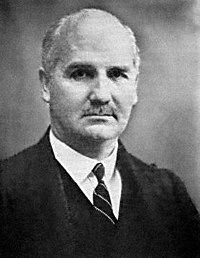The Viscount Cherwell | |
|---|---|
 | |
| Paymaster General | |
| In office 1942–1945 | |
| Preceded by | Sir William Jowitt |
| Succeeded by | Vacant Next holder Arthur Greenwood |
| Paymaster General | |
| In office 1951–1953 | |
| Preceded by | The Lord Macdonald of Gwaenysgor |
| Succeeded by | The Earl of Selkirk |
| Personal details | |
| Born | 5 April 1886 Baden-Baden, German Empire |
| Died | 3 July 1957 (aged 71) Oxford, United Kingdom |
| Alma mater | University of Berlin |
| Known for | "Dehousing" paper Lindemann mechanism Lindemann index Lindemann melting criterion |
Frederick Alexander Lindemann, 1st Viscount Cherwell, CH, PC, FRS (/ˈtʃɑːrwɛl/ CHAR-wel; 5 April 1886 – 3 July 1957) was a British physicist who was prime scientific adviser to Winston Churchill in World War II.
He was involved in the development of radar and infra-red guidance systems. He was sceptical of the first reports of the enemy's V-weapons programme. He pressed the case for the strategic area bombing of cities.
His abiding influence on Churchill stemmed from close personal friendship, as a member of the latter's country-house set. In Churchill's second government, he was given a seat in the cabinet, and later created Viscount Cherwell of Oxford.